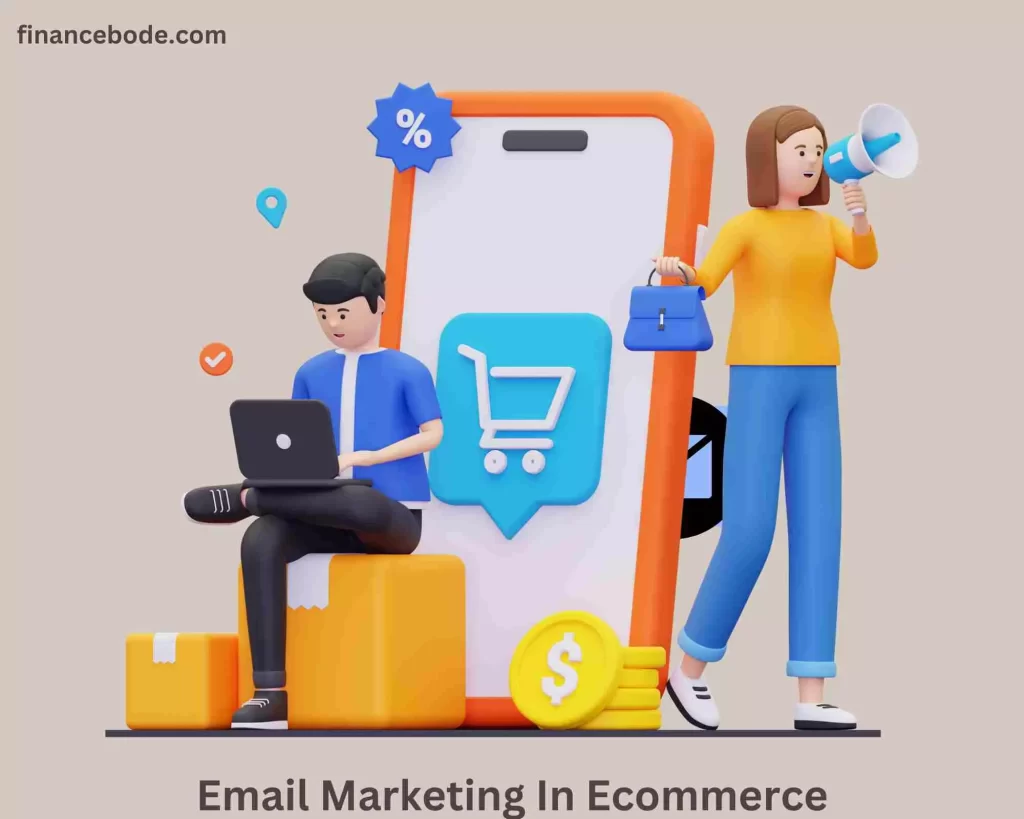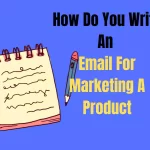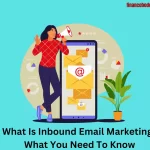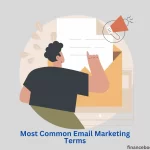Email marketing in ecommerce or any other service business is the best every business should look for.
Email Marketing has become a vital way of interaction. It helps companies market goods and services, locate clients, and create brand awareness.
In this article, let’s discuss how ecommerce companies can effectively use email marketing.
Recommended Reading: How to use email marketing for customer support.
Let’s take a brief look at the ecommerce industry.
Overview Of The ECommerce Industry
ecommerce is described as the conduct of part or the full process of commercial operations by electronic means linked to the Internet, mobile telecommunications networks or other open networks.
“Commercial operations carried out on electronic media would be classified as ecommerce.
Unlike many businesses hit by the Covid-19 outbreak, the ecommerce industry achieved numerous notable growths.
It is the challenging circumstances of the pandemic that has generated conditions to make a push for ecommerce. And this is also the reason why customers’ buying habits shift.
According to the most recent research, 81% of customers claimed they had modified their purchasing habits during the outbreak.
And 92% affirmed that they would continue to use this choice even after the pandemic was gone.
What Is Ecommerce Email Marketing?
What is email marketing in Ecommerce? Email marketing for ecommerce is a marketing channel via which you may deliver marketing communications to present and new consumers.
The techniques you utilize might be as easy as sending out a weekly series of emails with new or highlighted goods.
With various automated Emails, sequences to remind consumers of unpaid carts, customer re-engagement, and special instructions.
ecommerce depends largely on email marketing as a tool to communicate with both current and new clients.
It is a tool used to market new items, provide unique offers and promotions, and connect with the target audience.
What you make from ecommerce email marketing is proportionate to what you invest, with an average ROI of $42 generated for every $1 invested.
You can make more from ecommerce email marketing than most (if not all) marketing channels other.
To start with ecommerce email marketing, you only need an email marketing program, some ecommerce email templates, and a full campaign or two.
The remainder will rely on expanding your email subscriber list.
See also: How to build an email subscriber list.
Why Is Email Important In eCommerce?
There need to be more real-life instances to indicate this age-old marketing strategy is still going strong today and is still the most suitable communication channel for an ecommerce business.
Most people possess at least one email account.
We must remember that more than 90% of customers visit their Email daily. Meanwhile, internet users on Facebook account for 76% and Twitter 42%. (Source)
Even to set up a social network account, you also need Email. As such, you can notice a notable discrepancy in this coverage rate.
Consumers desire to get marketing information from their favourite firms through Email.
People are not frightened to receive commercial messages through Email. Approximately 75% of them prefer to be contacted by firms through Email.
Email marketing success rate is one reason ecommerce businesses should use it.
Back in 2018, a survey indicated that 66% of internet shoppers made a purchase choice due to receiving a marketing email.
By 2020, social media is beginning to get stronger. The percentage of 66% has reduced to 59%, although only a little. It is still evidence that people prefer to appreciate touch through Email.
As such, popularity is a reason enough to maintain Email Marketing functioning successfully in any industry.
It even beats all other marketing mediums to generate a 4200% ROI. That implies for every $1 invested in email marketing, you will earn $42.
Benefits of Email Marketing In Ecommerce For Business?
Although Email marketing in ecommerce accounts for just a tiny fraction of a business’s total marketing strategy.
It substantially influences a company’s capacity to attract consumers and produce money.
Customers can utilize the channel to receive information.
Contrary to conventional business, customers using ecommerce platforms may access and learn about things and services through emails instead of visiting storefronts to make direct purchases.
Email marketing in ecommerce may help organizations to reach out to consumers rapidly and proactively.
Therefore, organizations can make use of email marketing to give information to consumers, helping to enhance conversion rates and generate income for the company.
Support transactions in your ecommerce shop
Email is the major communication medium with clients, with the capacity to answer immediately.
Because their inbox is the first place, they go to verify whether the transaction is successful.
In addition to supporting transactions in ecommerce sites, the influence of email marketing in extending the market is certainly helping to provide greater revenues to companies!
Build ties with customers.
Email marketing in ecommerce helps firms create long-term connections with consumers.
By welcoming subscribers to the business, directing them to check out, and thanking consumers for their purchase without depending on media channels like conventional advertising.
Email marketing readily takes advantage of other traditional marketing strategies.
See also: How to build relationships with customers via Email.
Cultivate ties with customers.
Email marketing in ecommerce helps organizations develop enduring ties with consumers.
Email marketing easily surpasses conventional marketing strategies by enticing people to the shop, supporting them with the checkout process, and showing thanks to the consumer for purchase without depending on media channels like traditional advertising.
Low cost
Email marketing in ecommerce is considered a low-cost strategy. Businesses may contact clients without incurring any extra expenditures.
Because the Internet is a worldwide network, companies may concentrate their advertising on a particular target demographic without being bound by region.
Simplify obtaining feedback
Collecting customer feedback is straightforward for organizations employing ecommerce marketing.
Customers may reply to information about products and services using emails. To allow companies swiftly collect client feedback without charge.
Automation in Marketing
Businesses may automate marketing by employing Email marketing in ecommerce.
With this strategy, companies may establish their brand image, promote, give information about their products and services, and at the same time, automatically take care of clients.
They can increase a company’s conversion rates in ways no other media can, particularly at a fraction of the expense.
Types Of ecommerce Email Marketing And How To Utilize Them For ecommerce Company
Email Welcome
The Welcome Email is the first Email on the website to sell to clients.
This is your time to create a positive impression on your subscribers and provide them with useful tips for their next purchasing experience.
Read also: How to write a welcome email.
Email reminder
Sending reminder emails based on a date or an event is a terrific chance to keep customers purchasing and returning to the business.
For example, a car dealership may utilize data regarding a customer’s purchase date and then send an automatic email reminder to get the car serviced every six months.
Maintenance expenditures have soared, accounting for a major percentage of their income.
Transaction confirmation email
Transaction confirmation emails are typically utilized with customer purchase and payment transactions.
This communication form is also comparable to an online invoice allowing clients to follow transactions.
Discount Email
Make your huge sale event known with your new sale announcement email.
With strong and modular writing for product photos, your consumers will readily understand the value of your offer.
Product suggestion email
Propose your stuff to consumers with a multi-product proposal email.
The pseudo-navigation also adds a stunning touch that makes readers feel they are buying on your site.
After-sales email
With a clean, streamlined style, this follow-up email template is excellent for seeking post-purchase consumer feedback.
It may also be used to instruct clients on utilizing and maintaining the product.
Practical Use Of Email Marketing In ecommerce
Make a clear plan
One of the greatest errors marketers make is generally not establishing a clear plan for the approach. Most do it creatively, “water to the feet to jump.”
Whether you do, you will need more time to verify whether your email marketing plan is functioning.
You also can’t evaluate precisely which marketing channels are doing well. What causes the strategy to successfully / fail to achieve its goals?
Planning is necessary if you want an effective long-term marketing plan. And here are important questions to help you plan:
- What is the purpose of this ecommerce email marketing campaign?
- Who do consumers want to reach?
- What forms of content are employed in the campaign?
- How long is the campaign anticipated to endure, and how often?
Please answer each of the preceding questions, in turn, to assist you in staying aware of the implementation process.
Also, they will assist in reducing unnecessary components, which squander money at the start of the practice.
Use consumer data to develop targeted communications.
Over the years, research has been conducted evaluating the effect of targeted marketing emails.
And the findings typically suggest that this method has a beneficial influence on the success of the ad plan.
So you’ll have to segment your consumers and send the proper material to each segmented group.
Build your message based on their personal information and the last activity on your business.
A greater degree of personalization will boost conversions for an ecommerce organization.
When creating an email, pay attention to the factors that interest the receiver. Include subject lines, calls to action, graphics, etc.
Here are some efficient strategies to produce customized content for ecommerce email marketing:
- Use a personal name in the subject line and content.
- Email special offers or coupons for abandoned carts.
- The campaign is based on the history of the most recent consumers. For example, proposing supplemental goods for things clients have bought.
- Provide popular gift choices for friends/family.
- Recommended goods based on prior purchases • …vv
Consider incentives when delivering email marketing in ecommerce.
Why are we incorporating this Offers part separately in ecommerce email marketing practices?
In many areas, when people decide to buy a product or service, they will consider other variables. Such as pricing, quality, warranty service, promotions, company reputation…etc.
In ecommerce, this is the business that offers mostly consumer goods/products. And an incentive scheme frequently has a major influence on purchase behaviour.
ecommerce email marketing campaigns have great conversion rates when you offer customers the proper offer. For example, discount certificates, gifts, and free shipping. Etc.
Free delivery is arguably the offer that consumers are most interested in.
Just imagine two places are offering the same price for the same thing. With one side shipping price of 15K and arrival from 1-2 days.
On the other side, there is no shipping price. However, it takes three days to obtain the items.
Which side will you choose?
It’s a reality that the great majority of purchasers utterly disregard shops that collect delivery costs.
Therefore, always consider delivering suitable rewards in email marketing initiatives, particularly with the cart abandonment group.
Learn from successful businesses in the same sector.
You should never duplicate but constantly be aware of what makes your competition successful.
If you’re a new shop or haven’t been doing well for a long time, it’s time to learn. This may provide you with an overview of the issue and can even influence your choices.
For example, you may realize that many clients adore the buy one get one free offer, Companies that concentrate on payment choices;
Or sell an add-on item to achieve greater success than other programs. Consider and pick the proper method and then test it.
Recommended Reading:
- Which industry should make use of email marketing?
- Why emails get ignored by customers
- The best color to use in email marketing.
Conclusion
Email Marketing is a tool that delivers several advantages in the sphere of ecommerce. Suppose your firm has not taken use of this form yet. Make use of it NOW.
You can utilize premium software and tools to have the greatest marketing. For example, the best software to send emails.
Thank you for reading the article. I wish you had an excellent Email Marketing campaign!
Frequently Asked Questions About Ecommerce Email Marketing
How many ecommerce emails should you send a week?
At a minimum, you should send at least two or three emails every week.
The only time I would suggest you send less than this is. If you sell more of a one-time product, the buyer won’t have to purchase again for a long time, and you don’t sell anything else.
How frequently should eCommerce send emails?
You should send ecommerce emails periodically; according to research by Omnisend, the best email frequency for small firms engaging in eCommerce is 10–19 emails per month.
That implies sending three to five emails every week might bring in the greatest results.
However, it’s crucial to realize that this is simply a basic guideline.
The easiest method to find the correct email frequency for your company is to experiment and observe what works best for your audience.
What days are ideal for ecommerce emails?
The greatest day to send Emails is Wednesday between 9 a.m. to 7 p.m.
Research has found that Tuesdays and Thursdays tend to be the best days to send eCommerce emails. This is because individuals are often more likely to be checking their Email these days.
It’s also vital to bear in mind that consumer interest in marketing emails reduces dramatically over the weekend, perhaps because individuals are less likely to be engaged with their inboxes.





